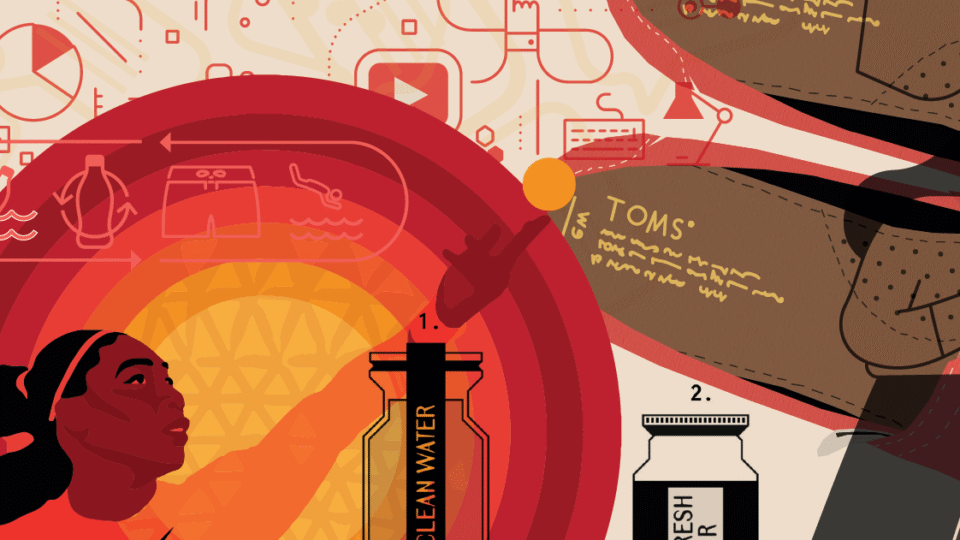In a world hooked on speed, Ethos has always been about slow, careful stories. As we celebrate a decade in print, we reflect on the setbacks, the surprises, and the stubborn power of hope.
Published:
03.11.2025
Writer:
Fiona Shaw
Ten years. A whole decade of Ethos. It feels both like the blink of an eye and an age. When we launched – online in 2015, followed by print in 2017 – our mission was simple enough on paper: to tell stories about good business. To celebrate the companies and leaders daring to think differently and about the ways business could be a genuine force for good. Of course, the lived reality was never so neat. These years have brought no shortage of ups and downs – exhilarating moments when the tide seemed to be shifting our way and tougher times when the very ideas we hold dear have been tested, pushed aside, or co-opted.
I think it’s fair to say that the last decade has been dominated by the pandemic – certainly, a lot of what’s come since ties in with it. It was one of those defining moments for a generation. Amid the fear and the grief, there was also hope: that we might collectively rethink what we value. That business would embrace impact over extraction, sustainability over short-termism, care over convenience. And for a while, it felt possible. People appreciated the birdsong in quieter skies, the renewed sense of neighbourliness and the idea that wellbeing and community mattered more than endless growth.
And yet, so much of that promise has faded. We’ve watched net zero targets diluted, equity and inclusion commitments quietly dropped, even cynically weaponised. It’s tiring, sometimes, to care so deeply. And to see how quickly ideals can be discarded when they clash with old power or short-term profit.
But. And it’s an important ‘but’, hope has to remain. If the past ten years have taught us anything, it’s that the fight for a fairer, greener, more humane way of doing business is never linear. Progress stumbles, but it doesn’t stop. Each story told, each new commitment made, each leader who dares to do things differently – they matter. They accumulate. And they keep us going.
And so, as much as we acknowledge the setbacks, we also celebrate. Ten years of Ethos is no small thing. In a world that rewards speed and noise, we’ve carved out space for something different: slow content. Stories that take time and care. Stories that dig deeper, linger longer, and trust that readers value thoughtfulness. That feels worth raising a glass to.
Because in the end, it’s this patience – this belief in quality over quantity – that has sustained us, and that will carry us into the next chapter.
We wouldn’t have reached this milestone without the brilliant team behind Ethos. I’ve enjoyed hearing from those of them who were there, whose reflections follow. Their words remind me why we began this journey in the first place and why, even in the harder moments, I believe the years to come can – and must – be better.
– Fiona Shaw, Co-founder and Editor
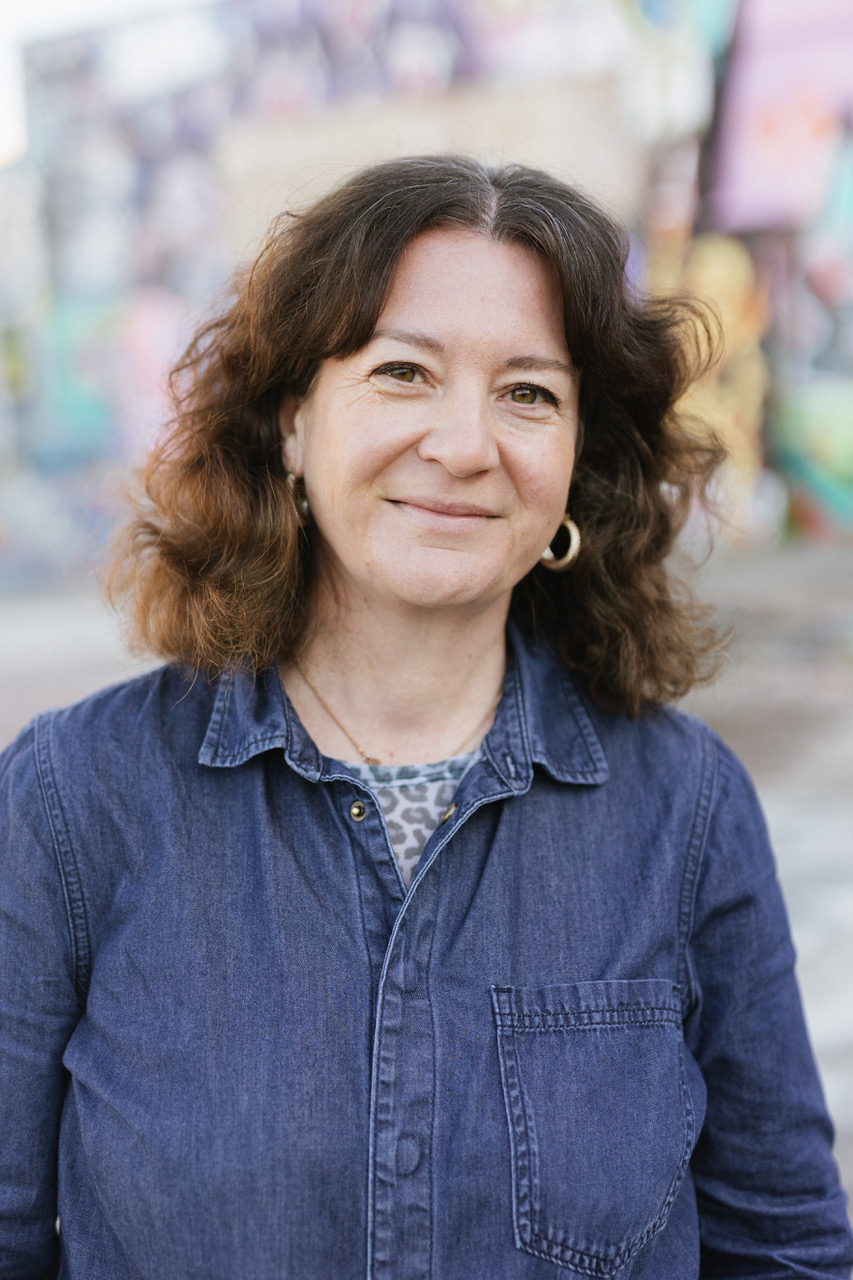
Lucy Chesters, editor – launch issue
I’m writing this whilst my seven-month-old takes his first nap of the day; the morning sun is pouring through half-open blinds, recent rain casting glimmers on the glass; autumn is approaching; all is quiet.
I can’t quite believe it’s been ten years since the launch of Ethos. As launch editor of the print magazine, I revelled in telling the stories of ethical businesses around the globe. I still hold a lot of those stories close to my heart. Like the story of Chatterbox, a translation business, created in response to the 2015 migrant crisis. Or Parley for the Oceans, which teamed up with Adidas to form the world’s first ocean plastic shoe. Or perhaps most poignantly, the story of Caanan Fair Trade, a farming cooperative encouraging self-sufficiency amongst Palestinian farmers in the West Bank.
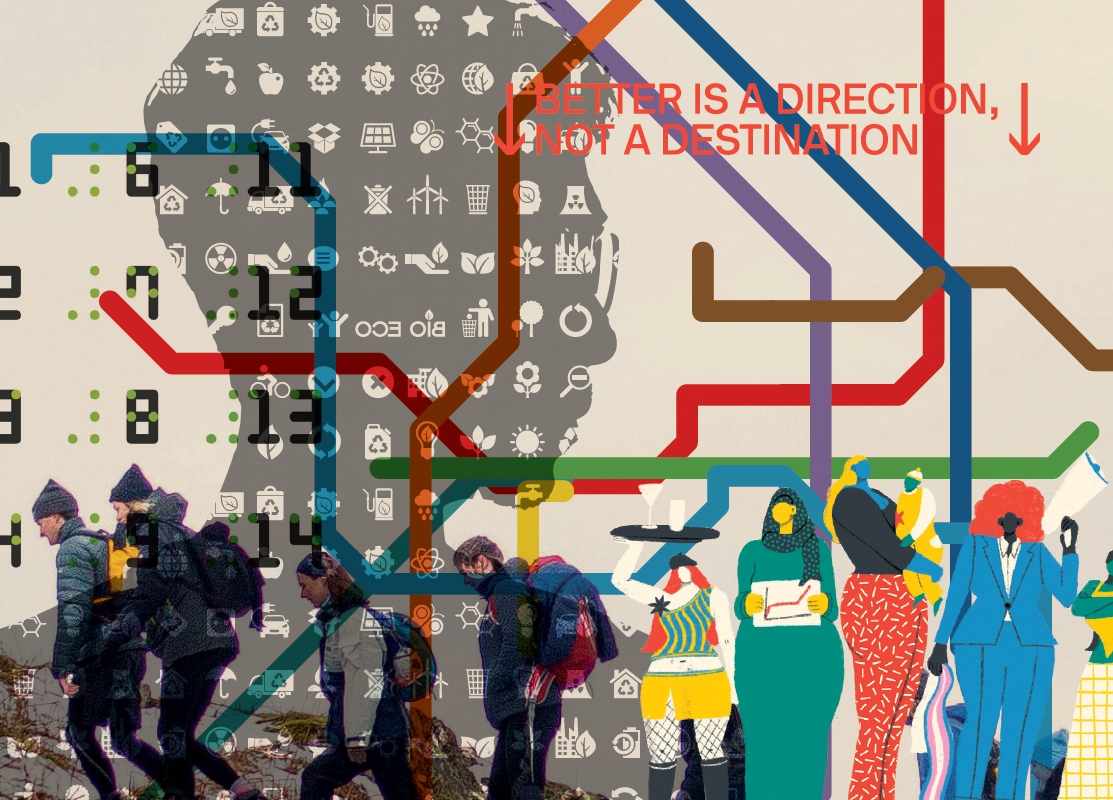
I’ve been thinking a lot about the latter in recent years.
Much has changed since I left Ethos magazine in 2020 to work at one of the UK’s leading suicide prevention charities. The global pandemic brought obvious challenges, whilst Russia’s invasion of Ukraine brought one of my now best friends to my doorstep, through the Homes for Ukraine scheme.
I’m also a mother now, to a baby boy who is sitting up, chewing his fingers, and pushing solids around his two newly erupted incisors with a gummy glee that is fascinating to watch. My world has become very small of late, and that’s not a bad thing. I’ve learned to lean into the tiny moments, the quiet moments, the magic that comes from watching a new human learn the world around them with such innocence that it can sometimes make my heart ache.
A lot has changed in the past decade.
In December 2015, a short update was posted to a blog. It didn’t pick up much traction; there was little fanfare surrounding it; on reflection, it was quite unremarkable. “OpenAI is a non-profit artificial intelligence research company,” it read. “Our goal is to advance digital intelligence in the way that is most likely to benefit humanity as a whole, unconstrained by a need to generate financial return.”
In the ten years since that post was published, OpenAI has changed the world. As of August 2025, it’s on the verge of a roughly $500 billion valuation, which – if realised – would make it the most valuable private company in the world. A stratospheric shift from the naivety of the non-profit that once wished to “build value for everyone rather than shareholders.”
I’m not against AI, quite the opposite in fact. The opportunities to augment systems and build a better future are within our grasp. But it’s figuring out how to wield this power when the large language models monopolising the market are deeply ingrained with bias. How can we build a better future for all when the systems determining the future of society benefit a privileged minority?

We’re at a tipping point, societally, economically, and ethically. The sands are shifting in a way unseen since the advent of the printing press or the factory line. AI and automation are certainly going to change the face of global business irrevocably. Is now the time that politicians start thinking seriously about Universal Basic Income?
Ethos has been covering UBI for the past decade. I remember speaking to leaders in the space – Guy Standing, John Thackara and Louise Haigh – and feeling genuinely excited at the concept.
Whilst AI and automation certainly brings challenges to global business, it will also bring with it huge opportunities. And I’m looking forward to reading Ethos’s take on the disruptive business innovators yet to come, over the next ten years, as it has so deftly told the stories of them over the past ten.
Maybe one day I’ll read my son the piece I wrote for Ethos that served as our inaugural print cover story, the story of how repurposing ocean plastic can help to save our seas and, in turn, the future of humanity. But, for now, I’ll start small and stick to Hooray For Fish.
Patrick Hurley, co-founder
The other co-founders have given their own views on the over-arching mission of Ethos and how it fits into a rapidly changing and dangerous world remade since we started. So I thought I’d give a more parochial perspective on our origins.
For me, the path to the first edition of Ethos started at the city’s inaugural International Festival for Business in 2014. The plan had been for the IFB to be a biennial celebration of business and a gathering to rival in the economic and industrial calendar to rival Mipim or the WEF or UKREiiF. It didn’t quite work out like that; there hasn’t been an IFB since 2018 and even that was a much reduced affair than previous shindigs.
But that first festival was where I met my future co-founders Fiona and Andrew. They’d been part of a team independently producing a fringe newspaper for delegates, and I was really taken with the ambition of it, the design, the writing, the attention to detail.
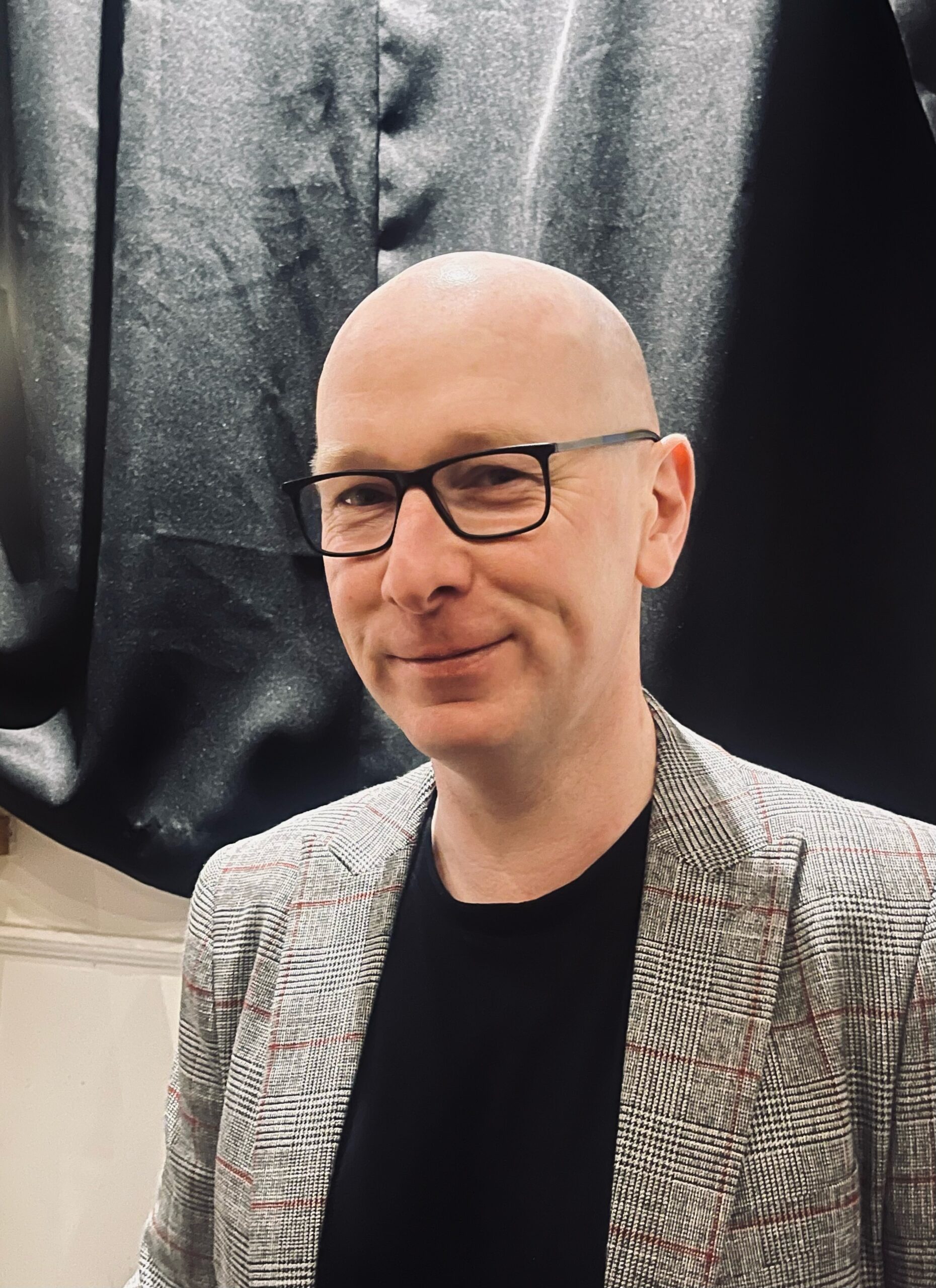
I was working at the time at a small membership body for social economy businesses in the region, and was running a couple of events as part of the festival. Through a mutual acquaintance, I managed to get a couple of hundred copies of the newspaper for distribution to my attendees. It went down a treat.
As the months went on, I kept a watching brief on the paper’s editorial team, and continued to be hugely impressed by their work. So, as
you might imagine, we arranged a meeting to discuss some potential work. Nothing much came of it. We arranged another meeting. Again, not much. We bumped into each other at an awards do. We saw each other in coffee shops around town. Eventually, we got serious about the magazine.
The theme – profiling ethical entrepreneurship both locally and globally – was an easy choice.
It was an interest of us all and the times were ripe for non-governmental ethical business. Ted Talks were in vogue, the tech bros of Silicon Valley were still paying at least lip service to a progressive agenda, and the huge challenges the world was facing were matched by the intentions of the powerful to fix them. How things have changed in just ten years.
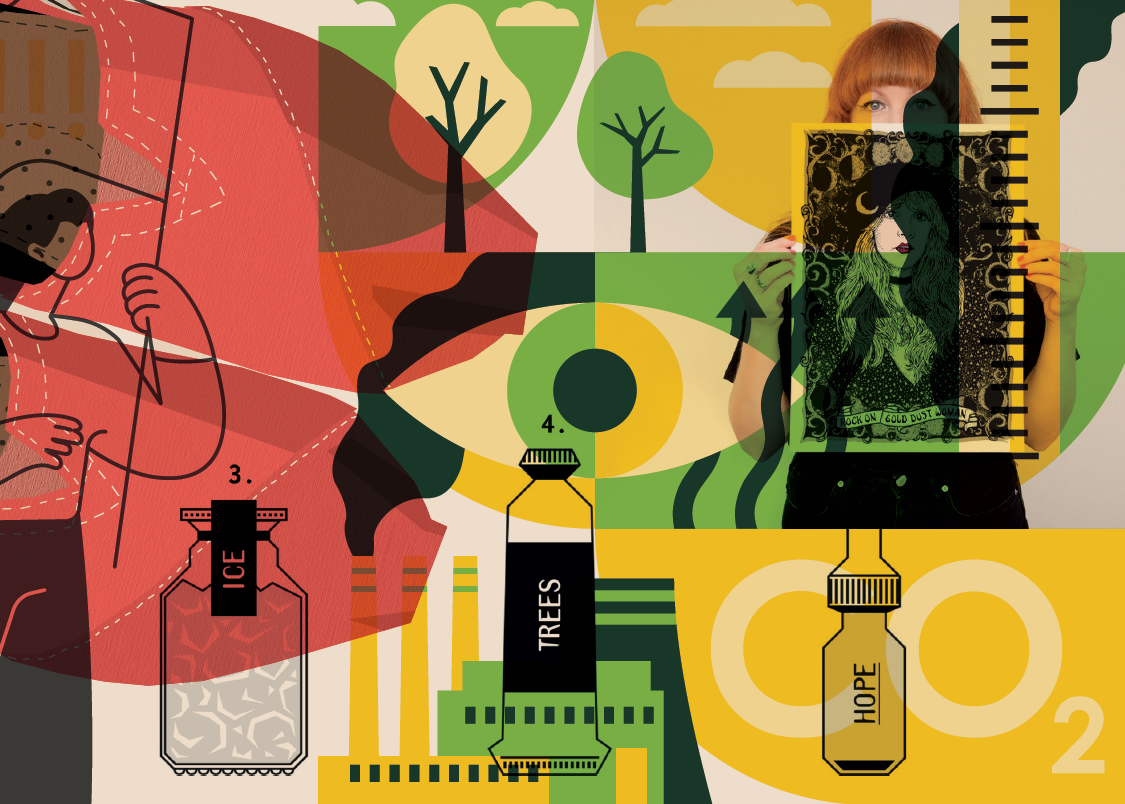
The name came next. The word ‘ethos’ seemed to crop up in all our conversations about the values of our nascent initiative. I don’t recall who suggested it as the name of the mag, but whoever it was, we all knew instinctively that it fit so well. The design work was as beautiful as I’d hoped, the choice of articles as interesting, the team as engaged in the project.
Speaking of the choice of articles – in our early days, we profiled The Y Foundation, a Finnish non-profit promoting what was then an esoteric and fringe theory of dealing with homelessness. Since then, its Housing First policy has gone mainstream, and is now recognised in many countries as the bedrock of the most effective way of dealing with an intractable problem. It’s one of my favourites that we wrote, but it’s slightly unfair to pick it out, as there are so many pieces that should have a spotlight on them.
It wasn’t all plain sailing in running the mag – nothing is. Printers’ delays, ad revenue, online shop tech issues, myriad other issues – they all combined to cause headaches and tension. But most things worth doing are hard. The more worth doing it is, the harder it is.
We’ve all changed over the last decade; I moved on to new challenges, but Ethos remains a piece of work that I’m overwhelmingly proud to have been a part of. I hope you think my pride is well placed.
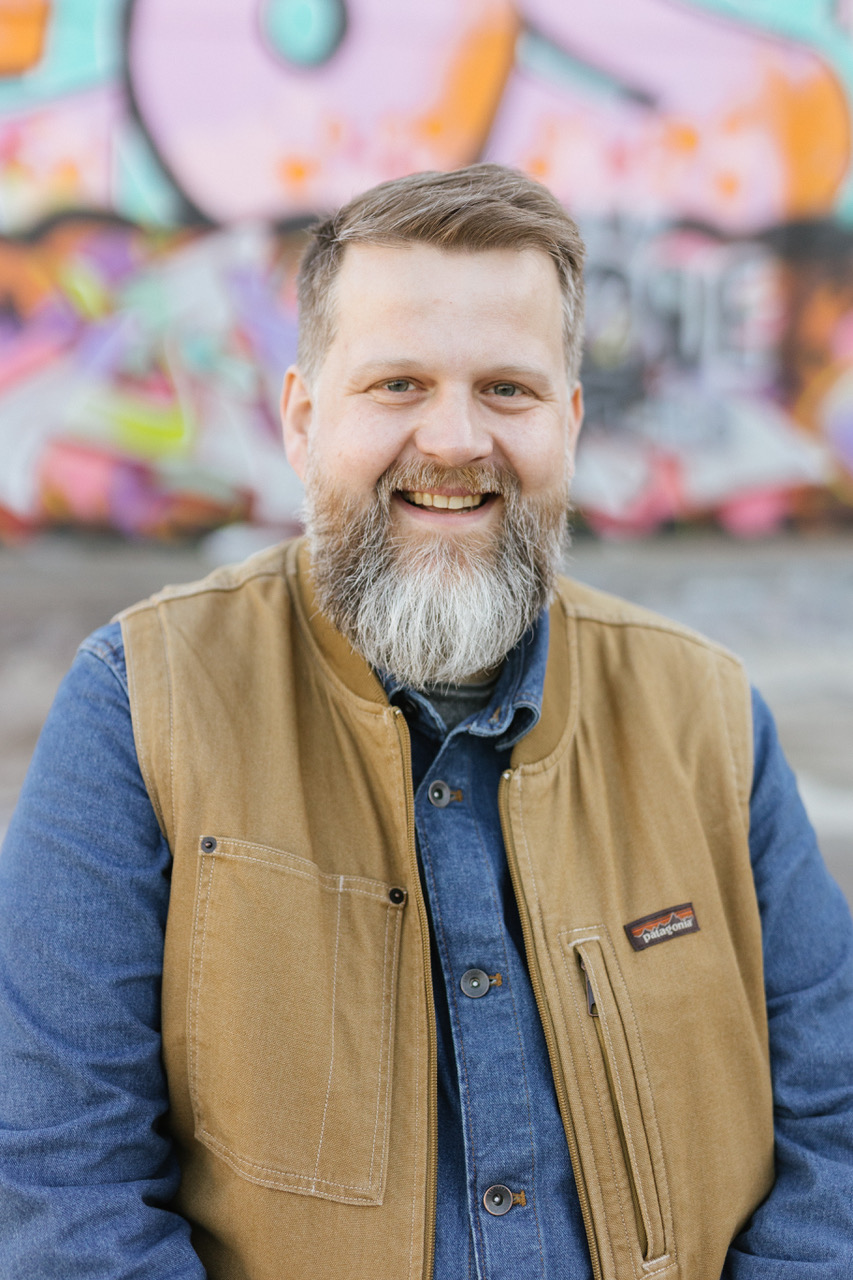
Andrew Beattie, co-founder
I’m not sure I thought if Ethos magazine would last ten years when we started out. I do seem to remember thinking that we’d have a go at it and see what happened. Could we make a magazine about good business – business how we saw it at its best, that could do good for people, communities and the planet, that gave us hope and the kind of businesses we ran – and see what happened when we put it out into the world? I suppose that how a lot of things start – a group of people, trying a thing, and seeing what happens.
I do remember feeling like it was important. My son was born shortly after we launched and I was having all sorts of feelings and thoughts about the world he’d grow up in and about the work I did and what I was contributing to.
A few years later I took him with me to Manchester one day to visit the Patagonia store. Fiona, Patrick and I had wanted to write a story on them in an early issue and so my lad and I took the train over one Saturday so that I could pop my head in and say hello.
Outside the store was a Ben and Jerry’s cart and we got an ice cream and chatted to their team about a campaign they were running together with Patagonia. I signed both of our names on the petition as we finished our ice creams.
Patagonia and Ben and Jerry’s were our next two cover stories and I managed to write the story of my son and I visiting Manchester into them and how I’d worried that he was going to smear ice cream up the sleeve of a better sweater. I was immensely proud of those stories of two businesses doing well and doing good. Names people recognised for our covers, to provide a hook into a world of great stories and inspiration.
My brother sent me an article last week about Jerry Greenfield, the Jerry of Ben and Jerry’s. It was about how he felt their parent company, Unilever, was no longer protecting the companies rich history of activism – and that he was stepping down from the company after 47 years. “We believe that the founding values are central to what Ben and Jerry’s is, and cannot simply be discarded out of the convenience or political pressure,” a joint statement from the founders read.
And so in year ten of the Ethos story, perhaps what Ethos stands for is more important than ever. The challenges we face are intensifying: global warming, biodiversity loss, worsening inequality, cuts to DEI programmes, regulatory retreat from environmental and social commitments. It’d be easy to feel deflated, or even defeated, by what feels like mounting challenges and setbacks to causes, but in a time when many are retreating we must keep looking forward – lifting up stories of what works, pushing for transparency, for accountability.
Business can, and still must, play its part in a better future for people and the planet. And so onwards we go into the next ten years, with hope for more great stories and inspiration.

